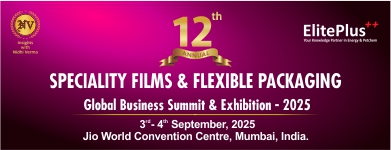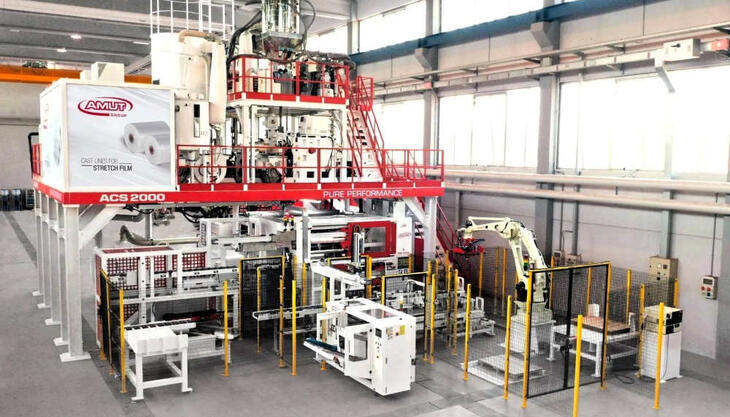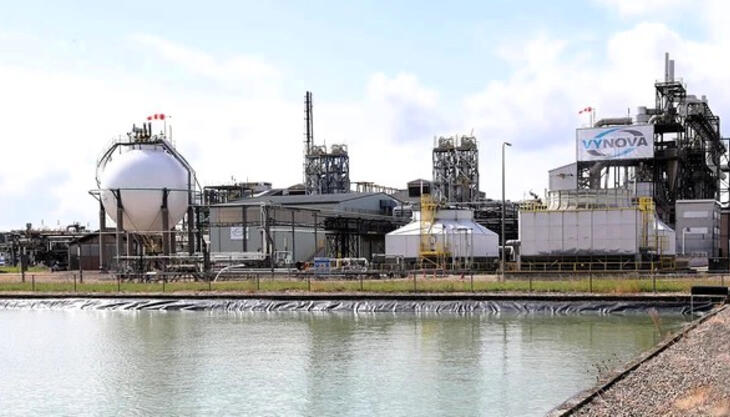Engel e-symposium 2021 - Sustainability and digitalisation drive growth
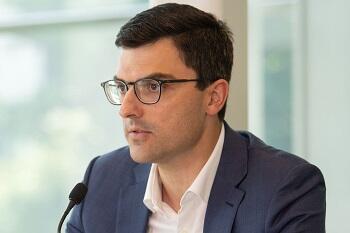
On June 21, shortly before the start of the live e-symposium 2021, Engel gave an optimistic outlook for the current fiscal year at its online press conference. “Our order books are as full as they last were in 2018”, reports CEO Stefan Engleder (in the picture on the left). The change came about in November 2020. Even demand from the automotive industry picked up again after two very difficult years. As a result, the 2020/2021 fiscal year came to a conciliatory end.
With 6,400 employees around the world, the Engel Group generated 1.1 billion euros in sales revenues. Although sales revenues again fell compared to the previous year with a minus of 15 percent, Engel is expecting growth again for the current fiscal year. “If the upward trend consolidates, growth in the order of up to 20 percent is realistic”, says CSO Christoph Steger (in the photo below on the right). “The Americas and Asia - and China in particular - were the first to see the economy pick up again, and strongly. But meanwhile, Europe is also clearly back on track”.
Although the strong order situation gives rise to optimism, there is still a degree of uncertainty that makes planning difficult, above all the current supply bottlenecks in raw materials and components. “We have to be prepared for markets becoming more volatile and demanding more flexibility from us”, says Steger. The Corona pandemic has not been defeated, the Engel managing directors emphasise.
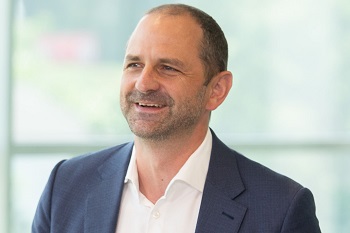 The innovation and growth drivers currently include three major topics in particular: sustainability, digitalisation and the transformation of the automobile. All three areas are closely interlinked. “Sustainability only works with digitalisation” is the core message of this year's Engel live e-symposium. “Digitalisation helps us to leverage the full potential of the injection moulding machine, and to make production more efficient and sustainable by doing so”, says Stefan Engleder. “If we genuinely make use of digitalisation, the CO2 reduction targets set by politicians will suddenly no longer seem impossible”.
The innovation and growth drivers currently include three major topics in particular: sustainability, digitalisation and the transformation of the automobile. All three areas are closely interlinked. “Sustainability only works with digitalisation” is the core message of this year's Engel live e-symposium. “Digitalisation helps us to leverage the full potential of the injection moulding machine, and to make production more efficient and sustainable by doing so”, says Stefan Engleder. “If we genuinely make use of digitalisation, the CO2 reduction targets set by politicians will suddenly no longer seem impossible”.
A recent study conducted by Accenture on behalf of bitkom predicts that digitalisation could reduce the current CO2 emissions of German companies by up to 58 percent. At 23 percent, the manufacturing sector is responsible for a particularly large share of this. The production of door components for vehicle interiors makes tangible what this can look like in practice. Engel's solution for linking simulation and physical production - sim link - helps to lay down the course for resource-saving production and subsequent recycling as early as in the component design stage. The process settings determined in the simulation are transferred to the injection moulding machine control unit, significantly accelerating mould sampling and further optimising the processing parameters. Conversely, process parameters and measurement results from the machine can also be very easily transferred to the simulation.
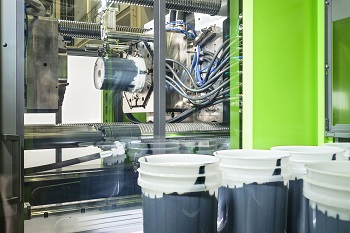 In ongoing production, it is smart assistance systems, such as iQ weight control and iQ flow control, that prevent rejects and significantly reduce energy consumption. The establishment of a Digital Solutions Sales Team sees the Engel Group bundle all sales activities for digital products and solutions from the inject 4.0 programme. Customers now have a central contact for all topics relating to the digitalisation of injection moulding production. These include the smart assistance systems from the iQ product family, shopfloor management solutions by TIG (independent company since 2016), such as MES authentig, and e-connect service solutions, such as e-connect.24 and e‑connect.monitor.
In ongoing production, it is smart assistance systems, such as iQ weight control and iQ flow control, that prevent rejects and significantly reduce energy consumption. The establishment of a Digital Solutions Sales Team sees the Engel Group bundle all sales activities for digital products and solutions from the inject 4.0 programme. Customers now have a central contact for all topics relating to the digitalisation of injection moulding production. These include the smart assistance systems from the iQ product family, shopfloor management solutions by TIG (independent company since 2016), such as MES authentig, and e-connect service solutions, such as e-connect.24 and e‑connect.monitor.
Coinjection revolution and processing plastic flakes directly
With a new process, Engel makes it possible to process plastic waste as flakes in injection moulding directly after grinding. Since a complete process step, pelletising, is eliminated, the innovation significantly improves cost efficiency in plastics recycling. At its live e-symposium 2021, the company is presenting the new two-stage process for the first time and demonstrating its great potential.
The key to shortening the recycling process is breaking down plasticising and injection into two independent process steps that are very well tuned with each other. In the first stage, the raw material, for example plastic flakes originating from post-consumer collection, is melted in a conventional plasticising screw. In the second stage of the process the melt is transferred to a second screw for injection into the cavity. The two-stage process makes it possible to integrate a melt filter and a degassing unit on the injection unit side of the injection moulding machine, so that products with a consistently high quality are obtained even from contaminated plastic flakes.
This innovation sees Engel make a further contribution to the establishment of a circular economy for plastics.
 Furthermore, the new coinjection process, which Engel has developed in cooperation with Top Grade Molds, enables high and completely encapsulated recycled material content in the production of pails and is thus superior to conventional processes for sandwich injection moulding. The new process will fully demonstrate its advantages in the production of 5-gallon pails during the Engel live e-symposium 2021 from 22 to 24 June. Very short cycle times are achieved in combination with the new Engel duo speed injection moulding machine.
Furthermore, the new coinjection process, which Engel has developed in cooperation with Top Grade Molds, enables high and completely encapsulated recycled material content in the production of pails and is thus superior to conventional processes for sandwich injection moulding. The new process will fully demonstrate its advantages in the production of 5-gallon pails during the Engel live e-symposium 2021 from 22 to 24 June. Very short cycle times are achieved in combination with the new Engel duo speed injection moulding machine.
Finally, Engel supports the work of environmental organisation Plastic Bank in Indonesia. As part of this cooperation, the injection moulding machine manufacturer has financed the collection of at least 120 tons of plastic waste in order to reclaim the recycling materials while at the same time contributing to the fight against poverty.













